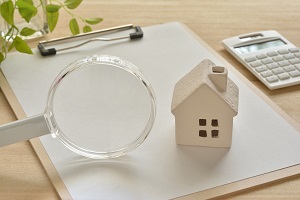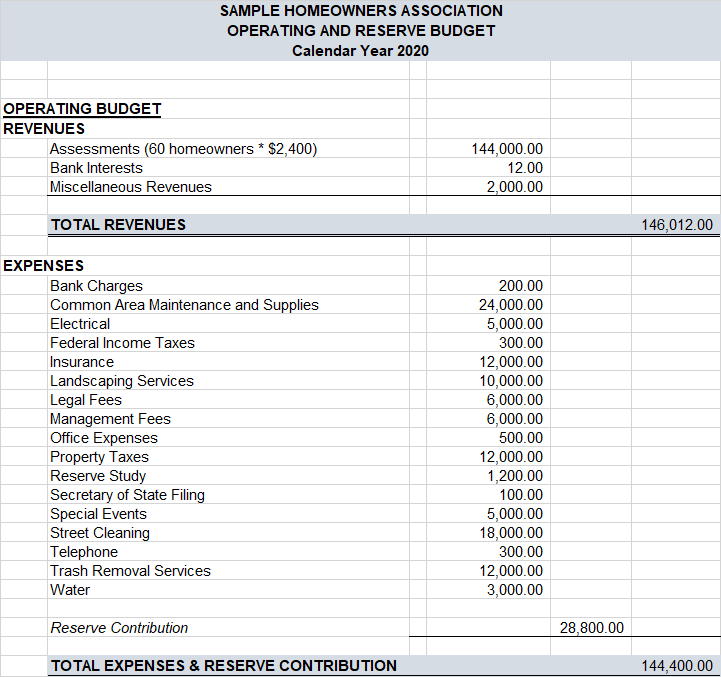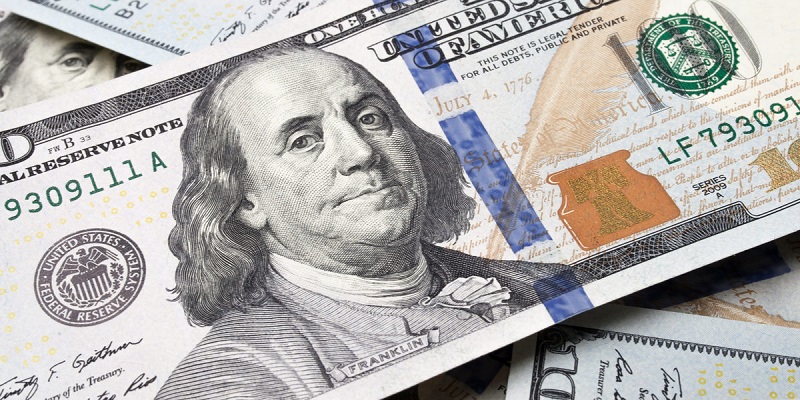Whether you are planning on taking the burden of the yearly budget upon the shoulders of your HOA board, or you plan to get the assistance of an HOA management company, the annual budget is one of the most important items on the agenda of any homeowners association. Here is your step-by-step guide on how to plan HOA annual budgets.
Plan HOA Annual Budgets the Right Way
Your annual budget can make or break your HOA. It sets the tone for all expenditures throughout the coming year. Furthermore, HOA boards use it as a basis to determine HOA fees. When done improperly, it could lead to disastrous results. If you fail to take everything into account, you risk coming up short on money for important expenses. As a result, you may have to charge special assessments, which most homeowners majorly dislike. If you want to plan HOA annual budget the correct way, here are the key steps to consider:
1. Get a Team Together
The first thing you must do is assemble a task force. Your HOA board does not have to be the only party in the HOA budget planning session. In fact, it is a good idea to include your HOA manager (if you have one). You may also want to consider inviting finance and budget committee heads.
2. Start Planning Early
 It is never too soon to begin thinking about the HOA yearly budget. Most HOAs begin thinking about the following year at the end of the summer. During the late spring and early summer months (or even earlier), a special meeting for the next year’s budget should be placed on the schedule for the late summer or early fall in order to guarantee it is not left until later.
It is never too soon to begin thinking about the HOA yearly budget. Most HOAs begin thinking about the following year at the end of the summer. During the late spring and early summer months (or even earlier), a special meeting for the next year’s budget should be placed on the schedule for the late summer or early fall in order to guarantee it is not left until later.
3. Schedule a Dedicated Session
Planning HOA annual budget takes time. It is not something you can simply squeeze into the last five minutes of a board meeting. As a rule of thumb, do not schedule your budget planning session on the same day as an important meeting or event. Set aside an entire afternoon for the task. Also, make sure to come into the meeting with a clear head and a ready attitude.
4. Define Your Community Goals
 Your goals will largely define what must go into your budget. What do you want to accomplish within the next 3 to 5 years? For instance, if your community is planning to install a new playground, factor that into your budget. If it is an expensive undertaking, you cannot just increase HOA fees in one big go. A good way to do this is to allow enough time and save up for it over a period of a few years.
Your goals will largely define what must go into your budget. What do you want to accomplish within the next 3 to 5 years? For instance, if your community is planning to install a new playground, factor that into your budget. If it is an expensive undertaking, you cannot just increase HOA fees in one big go. A good way to do this is to allow enough time and save up for it over a period of a few years.
Community goals are just that — they come from the community. These are not objectives your board alone can decide on. As such, survey residents before your budget planning session to gather information. Then, assess these goals and identify which ones are worth pursuing. Just because a single resident wants a hot tub in the clubhouse does not mean your HOA should follow through.
5. Anticipate Increases
There will be inevitable increases in cost every year. It is crucial to anticipate these increases before they occur for the health of your HOAs finances. Consider utility increases as well as increases in the cost of services and materials when putting together the next year’s budget. You must take inflation into account. If you can, it is a good idea to survey your vendors to see if they plan to increase their fees for the next year. This way, you can either make room in your budget or start considering cheaper options.
6. Prioritize Replacements and Repairs
When you prepare HOA annual budget, do not forget to factor in the cost of replacements and repairs. An HOA board’s primary responsibility is to maintain the community. So, if you neglect to repair or replace common facilities, you are not really doing a good job of fulfilling your role. Remember that curb appeal plays a huge role in maintaining property values. Homeowners invested a lot of money into their houses. They even pay regular dues. As such, they have a right to demand better maintenance from the board.
7. Boost the Reserve Fund
The budget should always be created in order to save more money in the reserve fund. The reserve fund is important as it anticipates major and minor unexpected costs that would otherwise hurt the budget. It is good to put between 15% and 20% of the budget into the reserve fund yearly. You should also consider conducting a reserve study. This way, you know the optimal level at which your reserves should operate at any given time.
8. Calculate and Include Insurance Deductibles
 Be sure to include the deductible amounts for all of your insurance plans in the budget. In so doing, you can avoid using money that should be used for unexpected repairs instead. Do not dip into the reserve fund for these deductibles.
Be sure to include the deductible amounts for all of your insurance plans in the budget. In so doing, you can avoid using money that should be used for unexpected repairs instead. Do not dip into the reserve fund for these deductibles.
9. Plan Landscaping Costs
Landscaping is an important part of the budget because it is necessary for the beauty of the community. But, it can also become expensive. Control your homeowners association yearly budget by looking for ways to save on landscaping costs.
For example, you can try planting perennials instead of annuals one year to save on the yearly cost of purchasing annuals. Alternatively, you can set aside extra money to invest in a sprinkler upgrade that will save on water expenses down the road.
10. Reassess Vendors and Insurance
 Every year, the planning of the new budget provides an opportunity to reassess all of your vendors and insurance plans. It is important to take the time to do this for two reasons. The first is that many of your vendors and insurance providers will increase the cost of their products and services on a yearly basis. The second is that you can ensure that you are still getting the best product for the lowest price. Companies change, and as they do, do not be afraid to switch to a different provider or vendor.
Every year, the planning of the new budget provides an opportunity to reassess all of your vendors and insurance plans. It is important to take the time to do this for two reasons. The first is that many of your vendors and insurance providers will increase the cost of their products and services on a yearly basis. The second is that you can ensure that you are still getting the best product for the lowest price. Companies change, and as they do, do not be afraid to switch to a different provider or vendor.
11. Plan Special Projects
Special projects can increase the morale of a community and promote camaraderie among residents. Spend time planning which special projects will be done the following year and which can be put off for a later time. Try not to schedule too many special projects at one time to avoid imposing excessive fees on homeowners.
HOA Yearly Budget Template
Planning your HOA annual budget can be overwhelming without the right tools. To help you out, here is a simple budget template you can follow. Alternatively, you can use this template below.

Start Your HOA Budget Planning With These Tips
It can be overwhelming to plan HOA annual budget. Luckily, you can accomplish it by getting a head start. Always plan early so that you can anticipate each change in detail. Remember to take all factors into account, including external and internal ones. You must also set money aside for your reserves, landscaping, and insurance costs. By doing so, you can come up with a sound yearly budget for your association.
If you still find it difficult to prepare your HOA annual budget, you might benefit from partnering with a remote HOA management company like us. Do not hesitate to give us a call anytime.
RELATED ARTICLES:
- 9 Things To Consider When Planning A Budget For A Community Association
- How To Plan For An HOA Snow Removal Budget
- 8 Tips To Manage Your HOA Budget The Right Way

